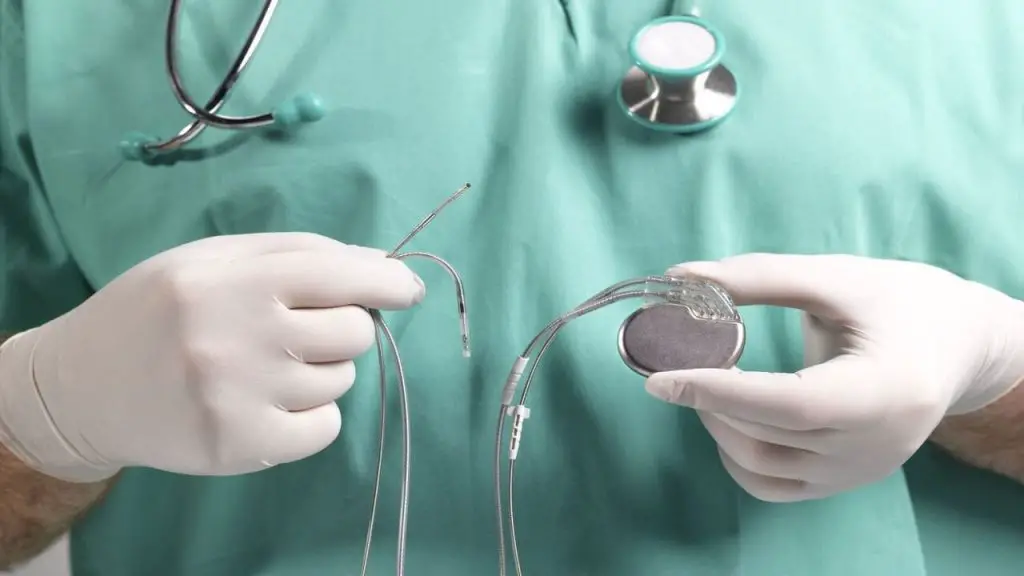A pacemaker is a small device that is implanted under the skin to help regulate the heartbeat. But what happens when the battery that powers the pacemaker dies? Is it a life-threatening situation?
Pacemakers have been used for decades to help people with heart conditions maintain a regular heartbeat. These devices have come a long way in terms of technology and design, but they still rely on a battery to function.
If you or a loved one has a pacemaker, it’s important to understand what happens when the battery dies. While it’s not an emergency situation, it’s still something that needs to be addressed as soon as possible to avoid any potential complications.
In this article, we’ll explore what happens when a pacemaker battery dies and what steps you should take to ensure your safety.
What are pacemakers?
Pacemakers are small medical devices that are implanted in a person’s chest to regulate their heart rate. They are often used for people who have an irregular heartbeat or heart block.
The device sends electrical signals to the heart to help it beat at a regular pace. Pacemakers are powered by a battery and can last for several years.
They are monitored regularly by a healthcare professional to ensure they are working properly and to make any necessary adjustments. Pacemakers have greatly improved the quality of life for many people with heart conditions.
Importance of a Pacemaker
A pacemaker is a small device that is implanted in the chest to help regulate the heartbeat. It is an important medical device for individuals who have an abnormal heart rhythm or arrhythmia.
A pacemaker helps to keep the heart beating at a regular pace, ensuring that the body receives enough oxygen and nutrients. Without a pacemaker, an individual with an irregular heartbeat may experience symptoms such as fatigue, dizziness, and shortness of breath.
Therefore, the importance of a pacemaker cannot be overstated as it can significantly improve a person’s quality of life and may even save their life.

What happens when pacemaker battery dies?
Loss of pacing function
When the pacemaker battery dies, the device can no longer provide electrical impulses to regulate the heartbeat.
This means that the heart may beat too slowly or irregularly, leading to symptoms such as fatigue, dizziness, and fainting.
Device malfunction
In addition to the loss of pacing function, a dying pacemaker battery can cause the device to malfunction. This can result in false readings, alarms, or other issues that can be confusing or alarming for the patient.
Increased risk of complications
If the pacemaker battery dies and is not replaced promptly, the patient may be at increased risk of complications such as blood clots, stroke, or heart attack.
This is because the heart is not able to pump blood effectively without the help of the pacemaker.
Need for replacement surgery
When a pacemaker battery dies, the device must be replaced. This typically requires surgery to remove the old device and implant a new one. While this is a relatively simple procedure, it does carry some risks such as infection, bleeding, or damage to the surrounding tissue.
Battery life expectancy
The battery life of a pacemaker varies depending on the type of device and how often it is used. Most pacemaker batteries last between 5 and 15 years, but some may need to be replaced more frequently.
Patients should work with their healthcare provider to monitor their devices and ensure that the battery is replaced before it dies.
Importance of regular check-ups
Regular check-ups with a cardiologist or other healthcare provider are important for patients with pacemakers.
During these appointments, the device can be checked to ensure that it is functioning properly and the battery life can be monitored.
This helps to ensure that the patient stays healthy and avoids complications related to a dying pacemaker battery.
Lifestyle adjustments
While waiting for a pacemaker battery replacement surgery, patients may need to make adjustments to their lifestyle to avoid overexertion or other activities that could put a strain on the heart.
This may include avoiding strenuous exercise, limiting caffeine and alcohol intake, and getting plenty of rest.
How many times can a pacemaker battery be replaced?
The number of times a pacemaker battery can be replaced depends on the type of pacemaker and the battery it uses. Most pacemakers have batteries that last between 5 and 15 years, and they can be replaced when the battery runs out.
Some newer pacemakers have rechargeable batteries that can last up to 10 years or more. When the battery is low, the pacemaker will emit a warning signal to alert the patient to see their doctor for a replacement.
It is important to follow the manufacturer’s guidelines and consult with a healthcare professional to ensure proper replacement and maintenance of the pacemaker.
Do you need surgery to replace pacemaker batteries?
Pacemakers are medical devices that are implanted under the skin to regulate the heartbeat. They require batteries to function properly, and over time, these batteries will need to be replaced.
Fortunately, replacing pacemaker batteries does not require surgery in most cases. Instead, a healthcare professional will use a local anesthetic to numb the area around the pacemaker, make a small incision, and then replace the battery.
The procedure is usually quick and straightforward, and patients can usually return home the same day. However, in some cases, surgery may be necessary if there are complications or if the pacemaker needs to be repositioned.
Conclusion
In conclusion, when a pacemaker battery dies, it can lead to serious consequences for the patient. The pacemaker is responsible for regulating the heartbeat and ensuring that it functions properly.
When the battery dies, the pacemaker cannot perform its function, which can lead to irregular heartbeats, fainting, and even heart failure. It is crucial for patients with pacemakers to regularly check the battery life and schedule replacements as needed to avoid any potential health risks.
If you are experiencing any symptoms related to your pacemaker, it is important to seek medical attention immediately.



